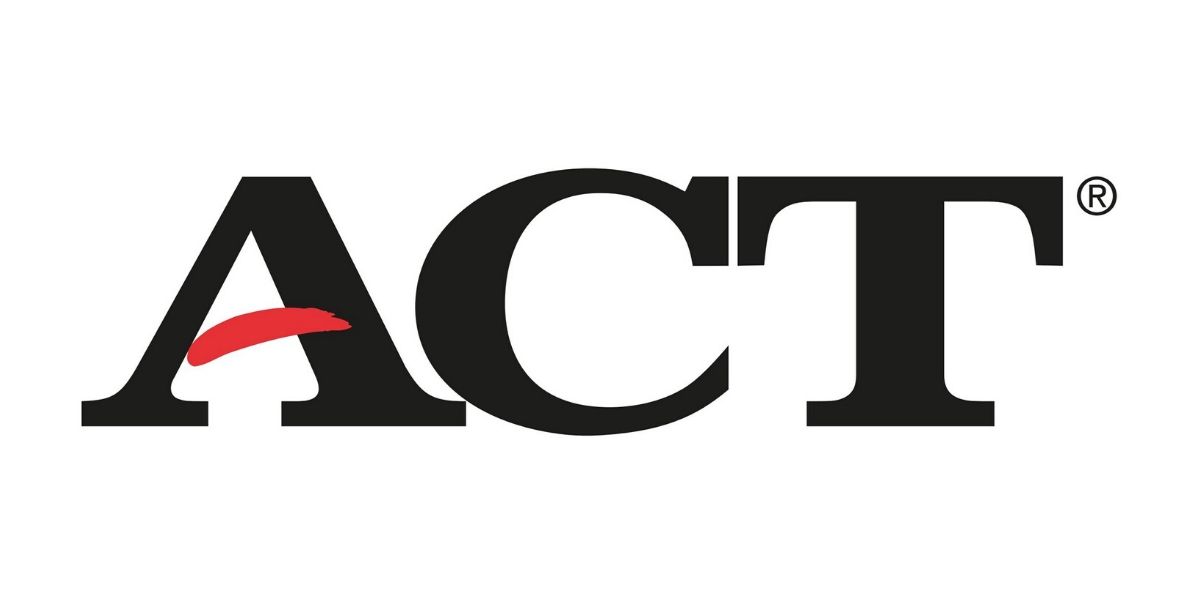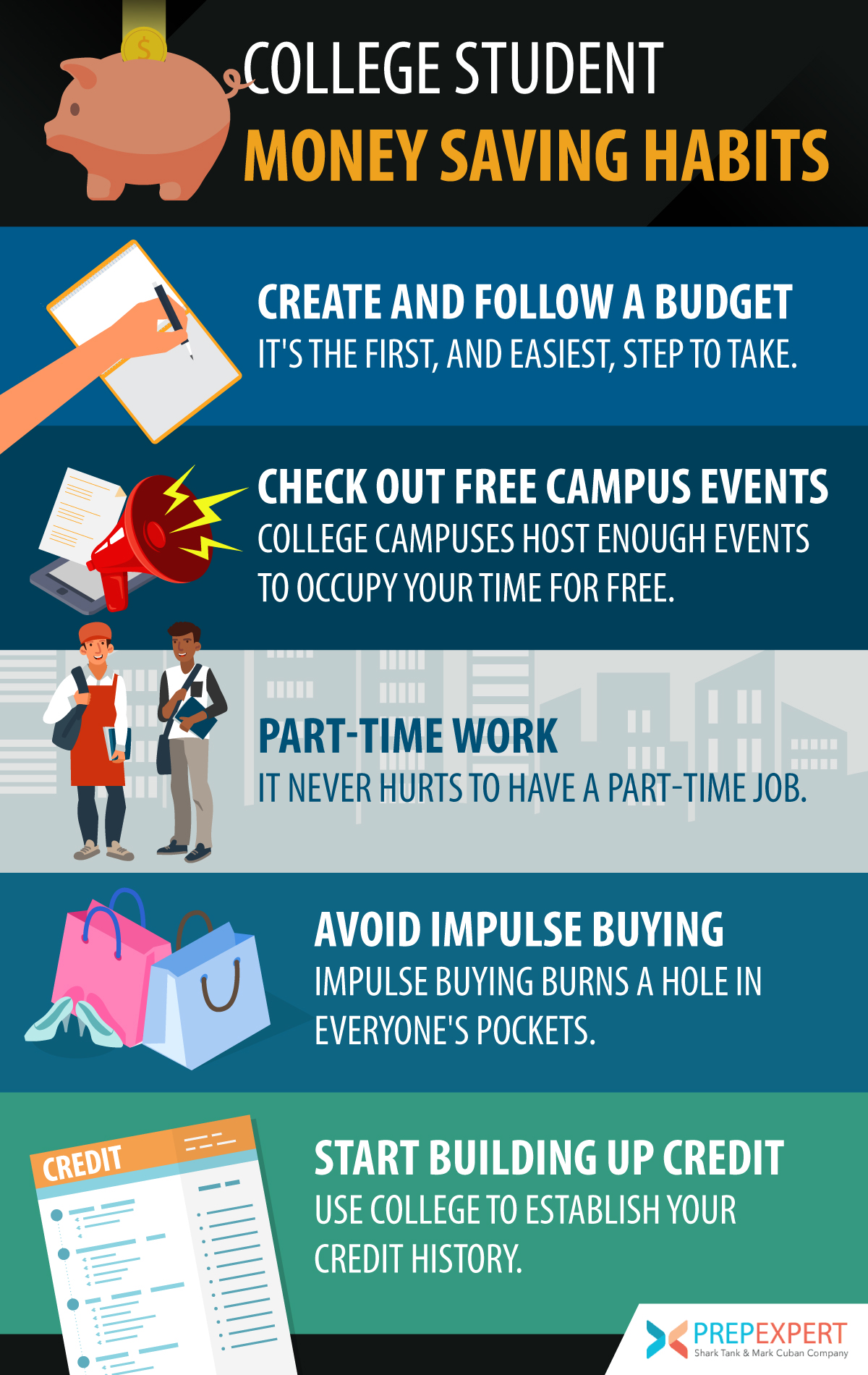College Student Money Saving Habits
Besides taking on student loans, college students often take on substantial debt due to poor financial planning and saving. It’s understandable, especially if you’re living on your own for the first time. However, there are college student money saving habits that are easy to follow.
Accruing debt is an unfortunate reality for many college students. It doesn’t have to be. There are many college student money-saving habits that are easy to follow and ensure a financially healthy future.
Learn how to prepare for standardized tests with our year-round SAT prep and ACT prep courses today.
Create And Follow A Budget
It’s the first, and easiest, step to take.
Before spending your financial aid check or student loan refund haphazardly, put some thought into how to spend. Take the time to sit down and set up a basic budget.
Outline your ongoing costs and how much money you have coming in. You can write it down in a notebook or spreadsheet, or download any number of free finance apps like Mint.
By putting everything down and itemizing your spending, you can see where you’re losing money that could go towards other bills. That way, you can avoid debt as much as possible.
Check Out Free Campus Events
College campuses host enough events to occupy your time for free.
There’s always something happening on campus. Whether it’s sponsored by the university itself, or another organization, you can get together with other students, have fun, eat free food, and not worry about denting your budget.
One of your best bets is checking what student organizations have events happening either on or just off-campus. Remember, there are all kinds of student activities and clubs that look for new members, and enjoy throwing parties too. Go online to your school’s community events page to get the latest events calendar.
Part-Time Work
It never hurts to have a part-time job.
Even if most of your tuition and expenses are already covered, consider getting yourself a part-time job for two reasons:
- Help bring in extra cash that you can use for fun or unexpected expenses
- Looks great on your post-graduate resume
If you’re worried about working far from school, then consider the variety of on-campus jobs that are available. Even if you only work a few hours a week, that extra income will make a difference when needed.
Better yet, it shows that you were a determined student, which always looks great to employers.
Avoid Impulse Buying
Impulse buying burns a hole in everyone’s pockets.
College is a social experience, as much as it is academic. You’re going to want to go out and have fun with friends out on the town. The temptation to eat out a lot and impulsively buy things is real.
However, you’ll see that it adds up very fast and can get you stuck when emergency bills present themselves. That’s why it’s always good to plan nights in with friends or allow yourself a nightly budget when going out.
As soon as you hit it, you have to cut yourself off. You’ll quickly learn how to still have fun but stretch every dollar.
Start Building Up Credit
Use college to establish your credit history.
It’s never too early to start building up your credit history. You need credit if you ever want to make purchases like:
- Buying a car,
- Renting your own apartment,
- Buying items on payment plans.
Without credit, it can be almost impossible to achieve these goals. One simple way that you can build up credit while in college is getting a secured credit card.
These are credit cards that are backed with your own money as collateral. You can start one for as little as $200. You provide the bank the cash, and they issue the card with that cash acting as the initial credit line.
As long as you stay within that limit and make regular payments, you will build positive credit and get experience on how to use it.
For more test strategy, college admissions, and scholarship application tips sign up for our FREE class happening right now!
College Student Money Saving Habits FAQ
What’s the very first thing I should do to save money?
Take the time to sit down and set up a basic budget. Outline your ongoing costs and how much money you have coming in. You can write it down in a notebook or spreadsheet, or download any number of free finance apps like Mint. By putting everything down and itemizing your spending, you can see where you’re losing money that could go towards other bills.
What’s another way I can save money on campus?
One of your best bets is checking what student organizations have events happening either on or just off-campus. Remember, there are all kinds of student activities and clubs that look for new members, and enjoy throwing parties too. Go online to your school’s community events page to get the latest events calendar.
What’s a common money problem that affects college students?
The temptation to eat out a lot and impulsively buy things is real. However, you’ll see that it adds up very fast and can get you stuck when emergency bills present themselves. That’s why it’s always good to plan nights in with friends or allow yourself a nightly budget when going out.
What’s a money-saving habit I can start in college?
Use college to establish your credit history. One simple way that you can build up credit while in college is getting a secured credit card. These are credit cards that are backed with your own money as collateral. You can start one for as little as $200. You provide the bank the cash, and they issue the card with that cash acting as the initial credit line. As long as you stay within that limit and make regular payments, you will build positive credit and get experience on how to use it.
Written by Todd Marcus
More from Todd Marcus

ACT Reading Passage Types | What To Expect
Be ready for the ACT Reading section by knowing the kinds of things you'll be reading. Here are the ACT…

Taking The ACT Junior Year
If you're ambitious and want to give yourself plenty of time for score improvement, then consider taking the ACT junior…

ACT 2020 Score Release Dates
Here then are the ACT 2020 score release dates to plan around, as well as, the different kinds of available…
